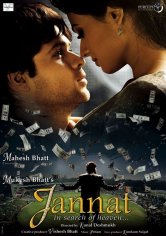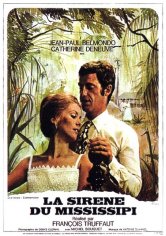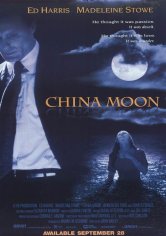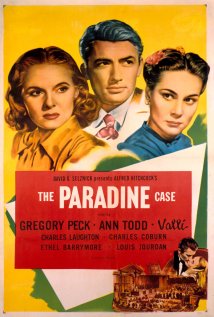Rayting:
6.5/
10 10.2K votes
Language: English
Release date: 26 August 1949
A happily married London barrister falls in love with the accused poisoner he is defending.
Similar Movies
6.0

Love Hostel 2022
5.3

Happily 2021
5.2

Locked Down 2021
4.2

Infamous 2020
6.0

Murder Mystery 2019
6.9

Jannat: In Search of Heaven... 2008
7.1

Mississippi Mermaid 1969
6.2

China Moon 1994


User Reviews
Why does this movie seem so dull? The acting isn't bad once you get past Gregory Peck's British accent. None of the performances are outstanding, they're just not bad. The roles restrict the performers' range. I think Alida Valli smiles once. Louis Jourdan seems to have only one expression, a bitter, barely controlled anger. If he tried to smile he might crack. The actor given the best lines is Charles Laughton, who hams it up and brings a bit of life to the screen. "Remarkable how the convolutions of a walnut resemble those of the human brain." And that flabby, sweaty palm as he takes the hand of Peck's wife, squeezes it lasciviously, and places it on his thigh.
Well, I can think of three reasons why it's dull.
(1) It's overwritten. The script needed somebody like Daryl F. Zanuck to hack out some of the underbrush. Peck is questioning Valli in court. It goes something like this: Peck: "What did you say to Latour." Valli: "I told him to leave the room." Peck: "But why did you tell him to leave?" Valli: "Because I no longer wanted him present." Peck: "And why did you no longer want him present?" Valli: "His presence was disturbing." And so on. How did the jury stay awake? Some of the scenes are pointless. Not the sort of interesting meanders you might find in other Hitchcock movies. Just pointless. Peck visits a country house to talk to Latour, who promises to show him the garden and then beats it pronto. An hour or two later Latour shows up banging on the window of Peck's room at the inn, having changed his mind for no apparent reason. The five-minute conversation that follows could have been condensed into half that time and benefited from some supplementary bits of business. Instead the two adversaries sit there like mahogany idols hiding information from one another. That's a poor script for you.
(2) Hitchcock's imagination seems to have been asleep during the shooting. Perhaps the director himself was asleep. (It happened from time to time.) It isn't necessary for every Hitchcock film to have a bravura shot in it. The camera needn't always swing down from an upper story and wind up with a closeup of the key in someone's hand. But there is, maybe, one shot in this flick that bespeaks Hitchcock. When Andre Latour is first called into the courtroom as a witness, Hitchcock keeps the camera focused on Valli's face in the defendant's chair and circles it slowly around her so that we see Jourdan walking slowly into the room past her, behind her, and can almost feel her incandescent desire to turn around and look directly at him.
(3) Hitchcock had a great sense of humor and it's entirely absent from this movie. It must in fact rank among the least humorous films he's ever made. And it's surprising, because he was usually able to insert some piece of business into even his most serious works. (Not including "Vertigo.") Often the humor centers around meals. A dowager stubs out a cigarette in a jar of cold cream, or the yolk of a fried egg. A police inspector is forced to eat fancy dishes that a Kurdish camel driver would turn up his nose at. Or the humor lies in montage, as in "The Man Who Knew Too Much," when Jimmy Stewart escapes from a clumsy set-to with the staff at a taxidermist's and the scene ends with a shot of a stuffed lion's head gaping at the slammed door. SOMEthing, anyway, to lighten things up. But not here.
Put
Fmovies: With all the proficiency in production for which both Hollywood veterans were recognized, David O. Selznick and Alfred Hitchcock seemed to go halves in creative effort on a polished piece of stagnant entertainment in their ceremonial Paradine Case. Dub it a mystery melodrama, even if that doesn't completely sum it up any more than it did Rebecca, a preceding, much superior production by the two. Classify it as a romantic courtroom would-be tragedy alongside a marriage soap opera. It's all of these things rolled together in one intermittently interesting movie, effortlessly told via Hitchcock's sophisticated camera.
If you recall the lingering distress which Rebecca, the apparition femme fatale of that film, set off all the other characters, albeit she herself was dead, that's the kind of shadowy trouble that the poised Mrs. Paradine affects all the characters in this narrative, except she's quite alive. Nevertheless, her husband, a blind man, is dead and she's on trial for his murder. The story itself has much prospective tension, especially putting Mrs. Paradine at the hub of the drama. It's never cut and dried what she's up to and though the seductive effect of a woman under suspicion on a man with influence is and was nothing new, the plot progresses on its own distinctive path, as she is a distinctive character. The issue is that, unlike Hitchcock's British films, this American Hitchcock film set in Britain dulls the blade of the dramatic elements and turns. Hitchcock's camera has a way of acting like an adept trial lawyer, whirring calmly along with customary material and swiftly punctuating with fluent theatrics, and also unsurprisingly, the movie's furnishings have a lush David O. Selznick guise. However, despite Hitchcock's simplistic mastery of when and how to move the camera, each scene is a dialogue piece that I, to my own surprise, found would be much more impactful in other, perhaps grittier and more contemporary hands.
Slowly, overemotionally, but gracefully enough, this picture files the potentially much more intriguing story of the eponymous widow's swaying lure over many who are impinged on by her trial, in addition to a predetermined eye-opener to the nature of the character herself. It makes a pale wink at the covetousness she provokes in the officiating judge, a typically sharp-tongued Charles Laughton whose urbane hostility has altogether sent his wife over the edge, another powerful narrative element that seems to have been glossed over. There's also disquieting suggestion of Mrs. Paradine's clutch on her husband's valet, a man upon whom keen suspicion is aimed before and during the trial, though mainly it follows the zeal she rouses in the stiff-postured man appointed as her defending counsel and of the torment this causes his wife.
Gregory Peck is fervent as the prominent young London barrister who lets his heart, callously ensnared by his client, control his head, while Ann Todd would be much more persuasively grief-stricken as his wife were it not for Franz Waxman's gushy score being poured on her every word like syrup. Italian import Alida Valli makes the confined Mrs. Paradine a composite of inscrutability, ambiguity and sensuality, and Louis Jourdan is pretty intense as the harassed valet.
It isn't a momentous Hitchcock effort by a long shot, save to the degree that it infers the cave dweller beneath everyone's practiced etiquette and concrete integrity and barristers' wigs. And it isn't
This is a disappointing effort from the team of Hitchcock and Selznick. Probably its greatest shortcoming was its inability to ingeniously circumvent the Production Code (as accomplished in "Notorious") to present its adult themes. As a result, even though it is obvious that the case itself is not the subject of the film so much as a backdrop for an awkward arrangement of love triangles and its effect on one "involved" attorney, the courtroom scenes are the most compellingly watchable of the film. In contrast, the final scene of the film does not carry the weight that it should and feels like a cheat rather than the resolution it pretends to be.
Some fault may be given to the just-OK performances from usually dependable actors such as Peck and Ann Todd. The stand-out performances here are from supporting characters such as Charles Coburn, Louis Jordan, Joan Tetzel, Charles Laughton and Ethel Barrymore, but they are either given very little to do or, in Barrymore's case, feel like they were interesting characters in sub-plots that were incompletely edited out of the film (usually a sign of a poor adaptation).
In the final analysis, this is a film that will probably only appeal to devotees of Hitchcock and/or Laughton.
The Paradine Case fmovies. There are some films that are forever lost that one wishes still existed: the complete GREED and THE MAGNIFICENT AMBERSONS (Welles final cut)for examples. In the cinema of Alfred Hitchcock, THE PARADINE CASE as he originally shot would have been of great interest. Whether it would have been better is another matter. THE PARADINE CASE is generally conceded as among Hitchcock's lesser films. It's most interesting parts of the performances of the leads (except for Alida Valli, who is quite dull), and the famous sequence of the portrait of Valli whose eyes seem to follow the camera (standing in for Gregory Peck/Anthony Keane) as it passes from one room to the next.
Hitchcock told Francois Truffaut that he felt the casting was wrong. He wanted Greta Garbo for Mrs. Paradine (but Selznick had Alida Valli signed up). He wanted Ronald Colman or Laurence Olivier as Keane (but Selznick had Gregory Peck signed up). He did not want Louis Jourdan as LaTour, but wanted Robert Newton. Again Selznick said no. As a result of our general respect for Hitchcock the suspense film artist we sympathize with his comments, and dismiss Selznick as a bullying producer who destroyed a masterpiece. I seriously question this view.
First of all, David Selznick (for most of his career as a producer) was way ahead of the majority of such Hollywood figures because of his taste and ability. Anyone who could create GONE WITH THE WIND, David COPPERFIELD, SINCE YOU WENT AWAY, and other high caliber movies is not one to dismiss so cavalierly. Most of the films he did with Hitchcock (whom he brought to Hollywood in 1939) were very good films: REBECCA, SUSPICION, SHADOW OF A DOUBT, LIFEBOAT, FOREIGN CORRESPONDENT - they were not crappy. Secondly, he was aware of difficulties in getting performers: Olivier was working in England in 1948. Colman was working mostly at MGM, but was a bit too old for the role. And Peck was not an unknown talent: He had worked with Hitchcock already. As for Garbo, she had been in retirement for six years, and there was no sign she was interested in a film come-back.
The Jourdan - Newton problem is another matter. LaTour, in the film, is Colonel Paradine's loyal batman, now a valet and groom on the estate. Mrs. Paradine has made a play for his affections, and he has rejected them out of loyalty to his master. Hitchcock felt that Robert Newton, with his physical appearance, would have looked more like a man who worked in the mire of a stable than Louis Jourdan did, although as Jourdan remained the Colonel's personal servant that seemed a minor casting point in favor of Newton. Hitchcock also skirted the issue (soon to be handled in ROPE, STRANGERS ON A TRAIN, and NORTH BY NORTHWEST) of a homosexual relationship between his characters. LaTour was supposed to be more openly close to the Colonel in Hitchcock's opinion. But it was a 1948 film - how close was the relationship supposed to be? Furthermore, Selznick as producer would be aware of one defect regarding Newton not found in Hitchcock's account to Truffaut: Newton's alcoholism. Given the size of Newton's benders he was a poor risk in most film acting roles (no matter how available he was). Not so with Louis Jourdan. The film was brought in under 93 days, and that record would not have been possible if Newton had been in the cast and kept getting drunk. As for the homosexual relationship, it never is fleshed at all in the film. But would a 1948 audience have been willing to accept that? I don't think so.
The supporting players
I liked this one, even though most people don't. It's a fascinating tale, and it seems very much Hitchcockian. Sure, it seems to drag at times, but the plot, directing, and the acting is good. Louis Jourdan is probably the best actor in this whole production. And to think this is his first English-speaking film. Gregory Peck is pretty good, also. I liked at the beginning when the cops arrested Alida Valli, and the audience isn't really sure why that is. Andre Latour's (Jourdan) little breakdown (I use breakdown for want of a better word) in the courtroom is terrific. I really love this movie, and I don't care how boring other people say it is. I would recommend this movie to anyone who thinks they can appreciate it.
OK, so it wasn't the most suspenseful movie Hitchcock ever made, but what a cast! Whenever you can get Charles Laughton, Ethel Barrymore, Gregory Peck, Leo G. Carroll, AND an exceedingly pretty Louis Jordan on the same screen at the same time, you know you're in for a treat. Laughton, as the judge, alone is worth the time spent watching this film.
True, they don't make "talky" pictures like this anymore, but that's half the fun. I think Maltin's 2 1/2 stars is just about right.